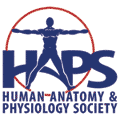Partnering Societies

The European Society for Separation Science has been established as an umbrella organization for the various divisions of the chemical sciences, especially for Separation Science which - with chromatography and electrophoresis as main branches - plays a fundamental role in designing analytical tools for all branches of chemistry and in creating interfaces to other science areas as diverse as biology, medicine, toxicology, and the pharmaceutical, food, agricultural and environmental sciences. In fact, separation science with its tremendous potential of data acquisition, data handling and correlation to ancillary data, is most often used to decode the molecular complexity of natural or man-made systems. By utilising this potential, the human mind can generate validated data bases for bio-informatics, and industrial and legal purposes. In order to master the tremendous technical variability - and potential - of separation science and to recognise and understand mechanistic and quantitative relationships, scientific excellency is a prerequisite.
The foundation of EuSSS is meant to be an instrument to reach those goals and also to give separation science a better visibility and sharper profile in the public arena.
The mission of the Human Anatomy and Physiology Society (HAPS) is to promote excellence in the teaching of anatomy and physiology. HAPS is open to anyone interested in anatomy and physiology education, and currently includes over 1,700 members from high schools, two and four year colleges, universities, and private businesses in the United States, Canada, and throughout the rest of the world.
The goals of HAPS are to promote and facilitate communication and collaboration among educators; to encourage innovation, educational research, and publication; to provide the membership with opportunities to become and remain informed about the latest developments in the health/science fields; to facilitate communication with other sectors of the educational and scientific community and to collect and disseminate to the membership information regarding events of interest; and to foster a sense of collegiality and camaraderie among members.
To achieve these goals, we produce the peer-reviewed HAPS-EDucator; offer HAPS-Institute courses for graduate credit or professional development; provide an online discussion forum for sharing expertise and experience; create Position Statements on Animal Use, Cadaver Use, Distance Education, and Accreditation; publish a comprehensive A&P exam; offer grants and scholarships for A&P students and instructors, and so much more.












